IELTS Reading Summary Completion – Lessons, Tips
Table of Contents
Limited-Time Offer : Access a FREE 10-Day IELTS Study Plan!
The IELTS Speaking Module is designed to assess your English Language Speaking Skills. To ensure a good score in the IELTS Speaking Module, you must study and practice the common Speaking Question types. Below is a sample Speaking Module with responses. By studying the sample answers, you can have a reference to begin drafting your own Speaking section answers.
Understanding IELTS Summary Questions
In the Reading section, you will be provided with a summary of information from a text, and there will be a few gaps. You will either get a list of words to be filled in the gaps or you could be asked to find answers from the reading passage. You will have to insert a few words from the text into the gaps. All of the information in the summary will also be available in the reading text. However, they will be using paraphrasing and synonyms. Thus, you cannot expect to find the exact words.
Strategies for Answering the Summary Questions
There are a few summary strategies, which have to be borne in mind while answering the questions. They are listed below:
- Read the entire question cautiously. Make a note of how many words you will have to write (generally one, two or three) and if it is possible to get the words from the reading list or the text.
- Skim through the entire summary and try to comprehend the general meaning of it.
- Try predicting the answers before you look into the reading text. Along with that, try to think about the type of word (adjective, verb, noun) that must be included.
- In case you have a list of words, try to guess which answer would fit in. Pay attention to the words that may collocate with the words available in the sentence.
- Comprehend the part of the reading text with which the summary is related. Scan for synonyms from the summary.
- Look at specific parts of the section cautiously and select the correct answer. Keep in mind that you must be careful with synonyms.
- Check and find out if your words are correct in terms of the grammar.
Tips for Summary IELTS Questions
Some tips to answer the questions and obtain a high band in the IELTS examination are given below:
- Try predicting the answers even before you glance at the given options. This will assist you find the correct answer.
- Find out whether the gap has to be filled with an adverb, adjective, noun or verb. If your sentence is grammatically wrong, you would have selected the wrong answer.
- Find synonyms as well as paraphrases in the text instead of words that seem directly matching.
- Don’t spend a lot of time looking for an answer to just one question. If you are unable to find it, move on to the next. Focus more on the easy answers.
- Normally, the answers would come in the similar order as that of the questions.
- If you have received a list of words, try to think about those that cannot be correct as per their grammar or meaning. Then, you can remove these words.
Sample Practice
Sample Reading Passage:
- To combat the consequent difficulty of access to people at a physical level, we have now developed technological access. Computers sit on every desk and are linked to one another, and in many cases to an external universe of other computers so that messages can be passed to and fro. Here too, security plays a part, since we must not be allowed access to messages destined for others. And so the password was invented. Now correspondence between individuals goes from desk to desk and cannot be accessed by colleagues. Library catalogues can be searched from one’s desk.
- Papers can be delivered to, and received from, other people at the press of a button. And yet it seems that, just as work is isolating individuals more and more, organizations are recognizing the advantages of ‘team-work’; perhaps to encourage employees to talk to one another again. Yet, how can groups work in teams if the possibilities for communication are reduced? How can they work together if e-mail provides a convenient electronic shield behind which the blurring of public and private can be exploited by the less scrupulous? If voice-mail walls up messages behind a password? If I can’t leave a message on my colleague’s desk because his office is locked?
Questions:
Summary questions can be of two types. You may be asked to choose words directly from the passage or from a wordlist or box.
Sample 1: Filling blanks with words from the passage
Complete the following summary. Choose NO MORE THAN TWO WORDS from the passage for each answer. Write your answers in blank spaces next to 1-6 on your answer sheet.
Computers sit on every desk and are linked to one another, and in many cases to an 1.………. of other computers so that messages can be passed to and fro. Now correspondence between individuals goes from 2…… and cannot be accessed by colleagues. And yet it seems that, just as work is 3…… individuals more and more, organizations are recognizing the advantages of ‘team-work’.
Answers:
|
Explanation
| For the first question, the answer can be found in the third line of the first passage and it is available in its original form.
For the second question, the answer is available toward the end of the first passage. For the third question, the word “isolating” can be found in the second line of the second passage. |
Sample 2: Filling blanks with words from the box
Complete the following summary. Choose NO MORE THAN TWO WORDS from the box for each answer. Write your answers in blank spaces next to 1-6 on your answer sheet.
The problem of physical access to buildings has now been 1………………………………by technology. Messages are 2………………………………with passwords not allowing 3…………………………to read someone else’s messages. But, while individuals are becoming increasingly 4……………………………..socially by the way, they do their job, at the same time more value is being put on 5 …………………………………. However, e-mail and voice-mail have led to 6…………………………………opportunities for person-to-person communication.
| Reducing off | computer | Other people |
| isolating | teamwork | Decrease in |
| similar | solved | No different from |
| overcame | physical | protected |
| combat | developed | cut-off |
Answers
- Solved
- Protected
- Other people
- Cut-off.
- Teamwork
- Decrease in
Explanation:
Now, could you guess the reason behind the answers?
| For the first question, although the word “combat” appears In the original, it does not fit here grammatically. The word “solved” is the answer because it is simple past tense and fits grammatically here.
For the second question, you can see in the second paragraph it is said that the messages cannot get accessed by others. So, we had to use a relevant word here. Protected seems the perfect fit. For the third question, in the first paragraph, when it comes to messages, it has been stated that passwords were invented to protect messages and avoid other people getting access to somebody’s messages. For the fourth, the word “isolating” does not fit grammatically. You need an adjective made from the past participle of the verb. For the fifth question, in the second paragraph, advantages of team work are being recognized; thus, it gets more value. For the sixth question, toward the end of the second paragraph, you can find how emails are blurring the public and private conversations; thus, leading to a decrease in person-to-person communications. |
FAQs
Which section of the IELTS exam has summary questions?
You can find the summary questions in the Reading section of the IELTS exam.
Is it possible that I find answers in the same order as the questions?
It could be possible. However, you must read the passage carefully.
Is it possible to find answers just by skimming?
It actually depends upon how prepared you are and how much practice you have done. Still, experts recommend that you read the passage thoroughly.
Can I use synonyms in my answers?
Yes, you can use synonyms in your answers.
Here are the 10 examples for the IELTS Reading Summary Completion:
- Example 1
- Example 2
- Example 3
- Example 4
- Example 5
- Example 6
- Example 7
- Example 8
- Example 9
- Example 10
Also check:
Practice IELTS Reading based on question types
Start Preparing for IELTS: Get Your 10-Day Study Plan Today!
Explore other Summary Completion Questions
Recent Articles

Kasturika Samanta

Kasturika Samanta
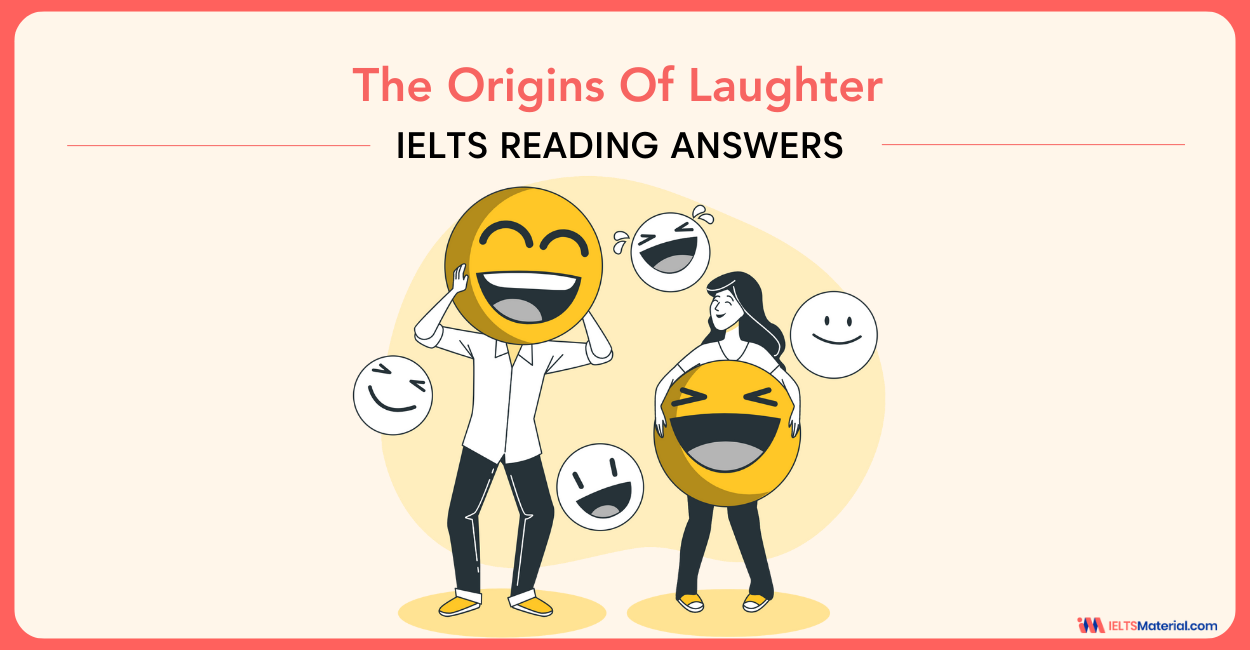
Janice Thompson
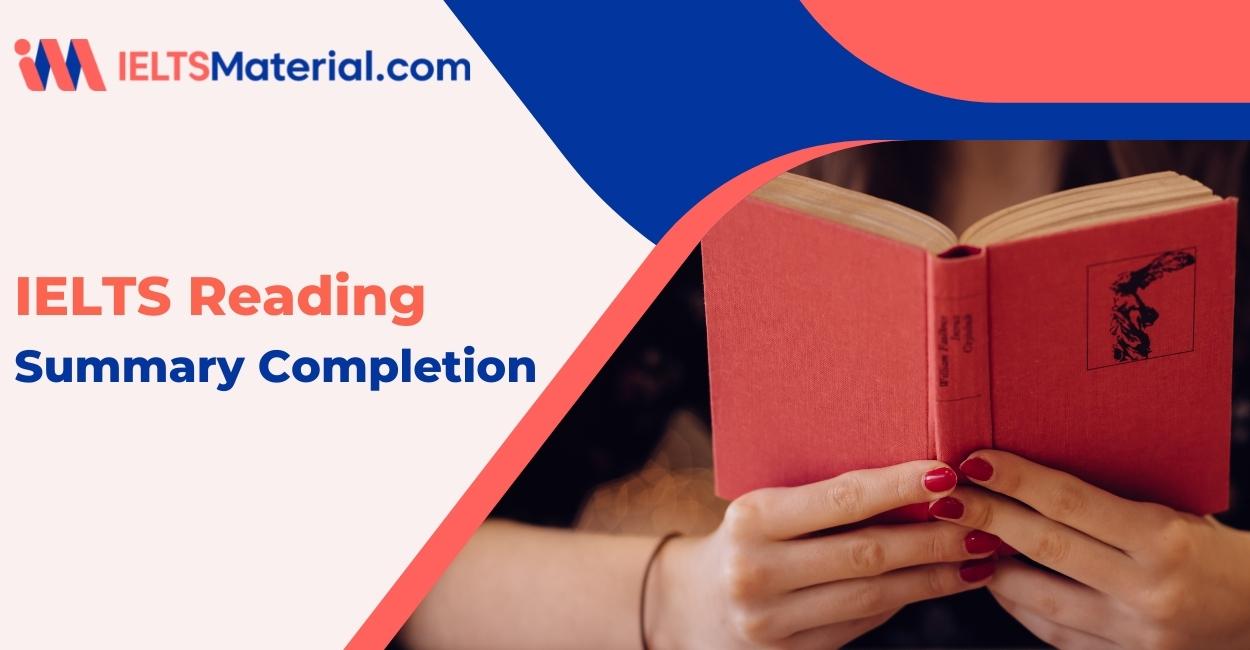
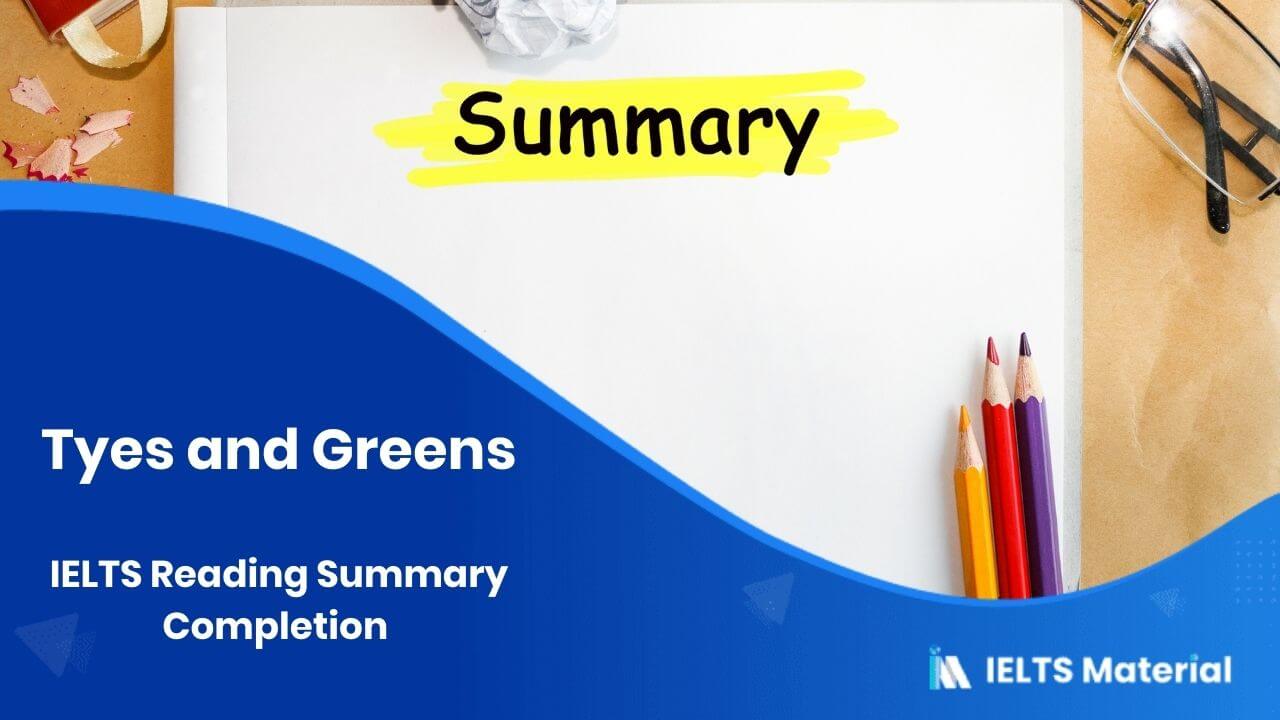

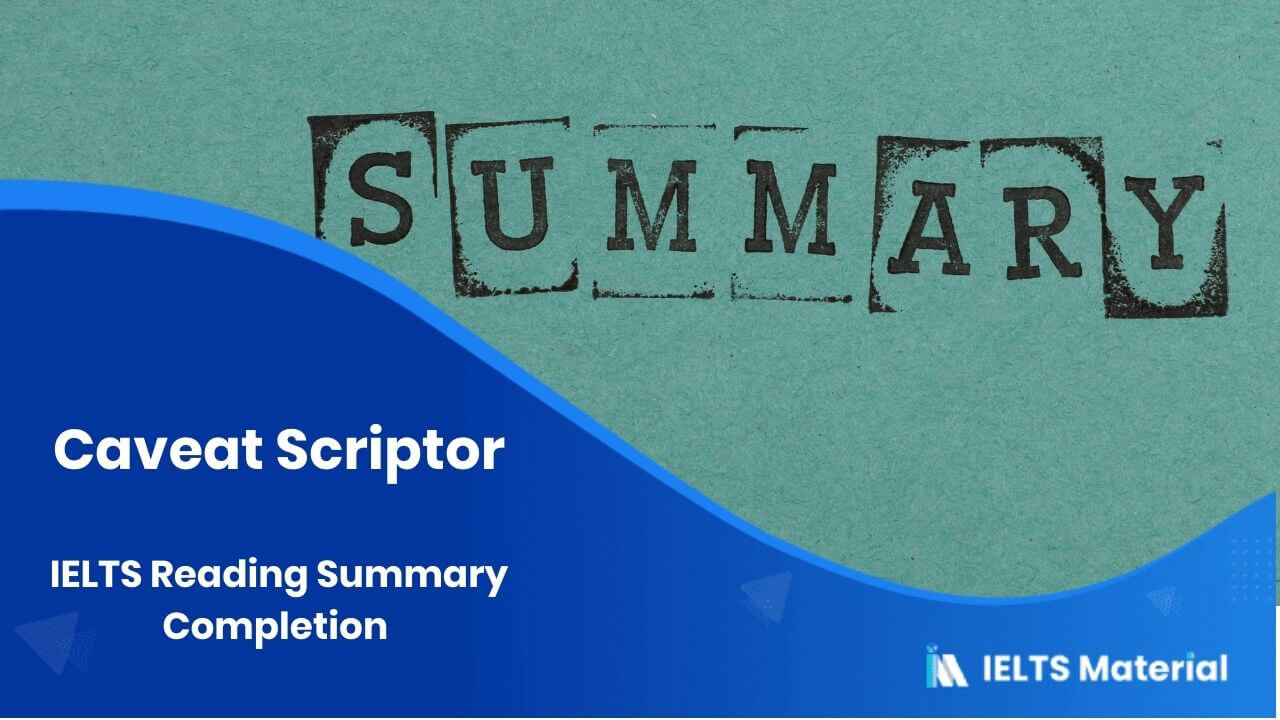
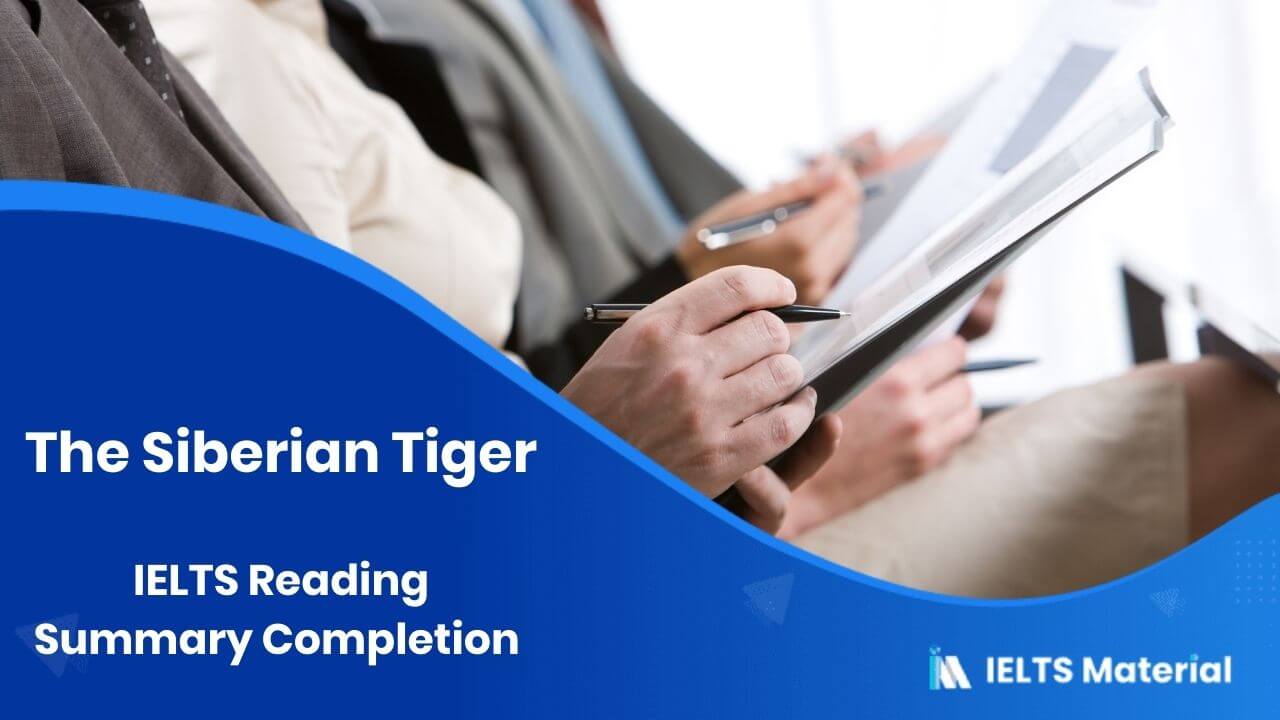



Post your Comments